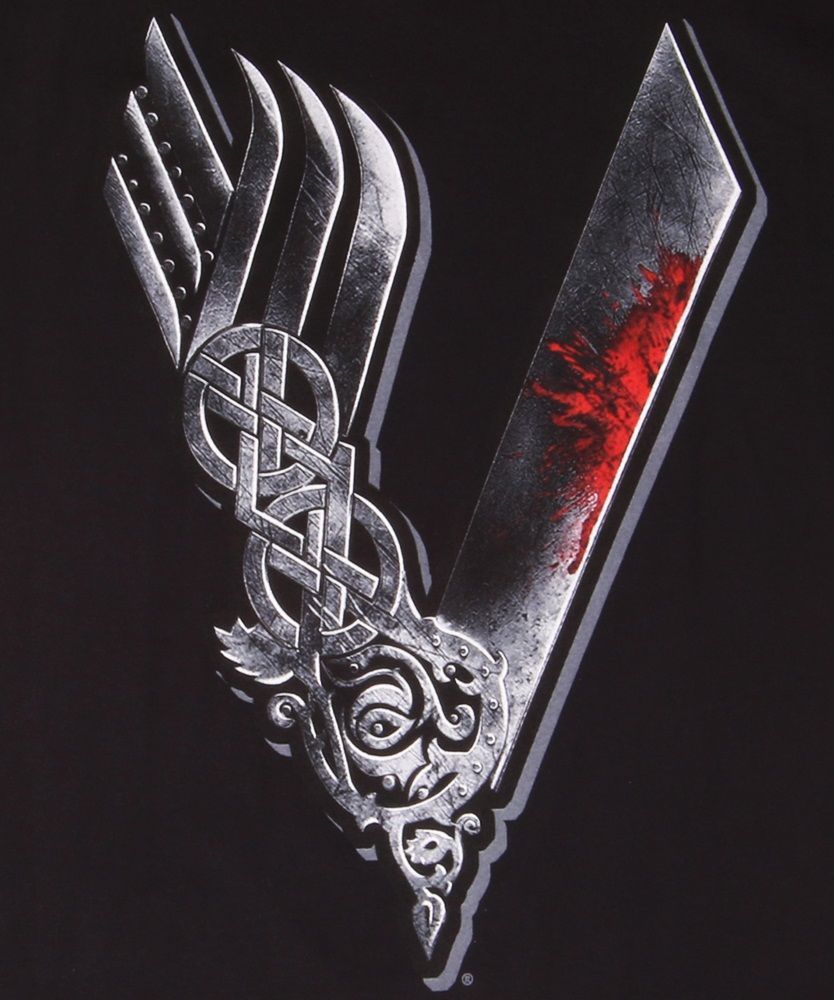This review is a long time coming. I started watching History Channel’s historical drama Vikings when it first aired in the spring of 2013. For those counting, that was over 8 years ago, and four years before our foundation of Concerning History. I’ve contemplated writing a review of VIkings many times in the past four years, yet the time never seemed right, and I finally resolved to do so once the entire series had concluded and I could comment on it in its long duree. Now, the time has finally come for me to reflect on one of the highest profile, infuriatingly irresponsible yet admirably atmospheric period pieces in living memory.
Vikings tells the saga of the mythical Ragnar Lothbrok and his sons, titanic figures of the eighth- and ninth-century viking golden age. From the first attempts to cross the North Sea to the infamous raid on Lindisfarne Abbey, Siege of Paris, and invasion of the English kingdoms, Ragnar and his family wreak havoc across Northern Europe as they pursue the glory of their gods and a better home for their people. While certainly an epic litany of events, it is precisely the decision to include so much Viking history in this one show that results in its most egregious historical inaccuracies. Vikings begins in AD 793, the year of Lindisfarne’s sack. According to show materials, it ends in AD 823 with the Battle of Edington, wherein Alfred the Great destroys the final host of the sons of Ragnar and, according to the show, the Viking Age comes crashing down. The problem, however, is that what should have been over 80 years of history has been condensed into just 30 years. The Siege of Paris (845) and Edington (878) both fall well after the putative run of Vikings, and such major characters as Harald Finehair (850-930), first king of Norway, and Alfred the Great (849-899) were not even born until decades after the show’s supposed end date. Perhaps the worst example here is the landing of Ragnar’s son Ubbe in Newfoundland in 823; his voyage is based on that of Norse explorer Bjarni Herjolffson, who is believed to be the first Scandinavian explorer to find the New World…in 986, fully 163 years after the show’s events. Even much of the general framing of the show’s characters and events fails the most cursory historical test; the Danish Great Army which invaded England was Danish, not Norse, and Wessex would continue to struggle with Scandinavian invaders for centuries after Edington. Ultimately, in trying to combine every possible saga and potentate of the Viking Age into a single story, Vikings utterly fails at relating the crucial details of history.
And yet, for all its narrative failures, Vikings stumbles into a higher level of thematic veracity for its period. Its first season in particular is close to a masterpiece, emphasizing the seasonal nature of raiding, that vikings like Ragnar were primarily farmers, even small facets of Scandinavian culture like gender norms, regional politics, and the mechanics of the new-model viking longboats and navigation that made their seaborne raids possible. As the seasons progress, Vikings falls prey to the tropes of Game of Thrones and so many other dark history pieces, namely, that everyone has their own agenda and a knife in the back, both figuratively and literally, is never far away. This, though, is really perfect for the period. In his King in the North (reviewed here on Concerning History), Max Adams notes that one of the defining features of eighth and ninth century England was the formation of kingdoms that outlived their kings; for much of the early medieval period, the patronage and conquest networks that masqueraded as a kingdom were built by each king during his reign and then fell apart upon his death. Vikings demonstrates this system in spades, along with the propensity for any local potentate with enough muscle to declare himself earl or king. Leaving one’s kingdom on campaign was also fraught with treachery, as those left behind to lead had just as good a chance of declaring their own sovereignty as holding down the fort.
The themes of culture and respective values are also prominent in Vikings, though ironically this resulted in a distinct feeling of distaste for me. The clash between Scandinavian paganism and Christianity is on full display, and the palpable early medieval omnipresence of religion and spirituality in the natural world is brilliantly portrayed through characters’ ambiguous visions that could or could not be real. Vikings also makes no attempt to censor the behavior of its supposed protagonists however; these great warlords kill and steal with abandon, and while explicit depictions of rape are thankfully rare, all but 2 male main characters abandon wives for a newer, younger woman with regularity. It is odd for the main characters of a show to really be the villains of the piece, but any modern audience should really be cheering on the Christian opponents of Ragnar and his sons, hoping against hope that they can stem the tide of these horrible, destructive raiders.
Despite its myriad flaws, then, I still have a hard time calling Vikings a complete waste. We receive too few period pieces set in this fascinating period of European history, and it is even rarer to see this level of production value. Yes, its specific history is horrendous, but if you can look past the trees for the greater forest of the period, it is not wholly unworthy of your attention.
